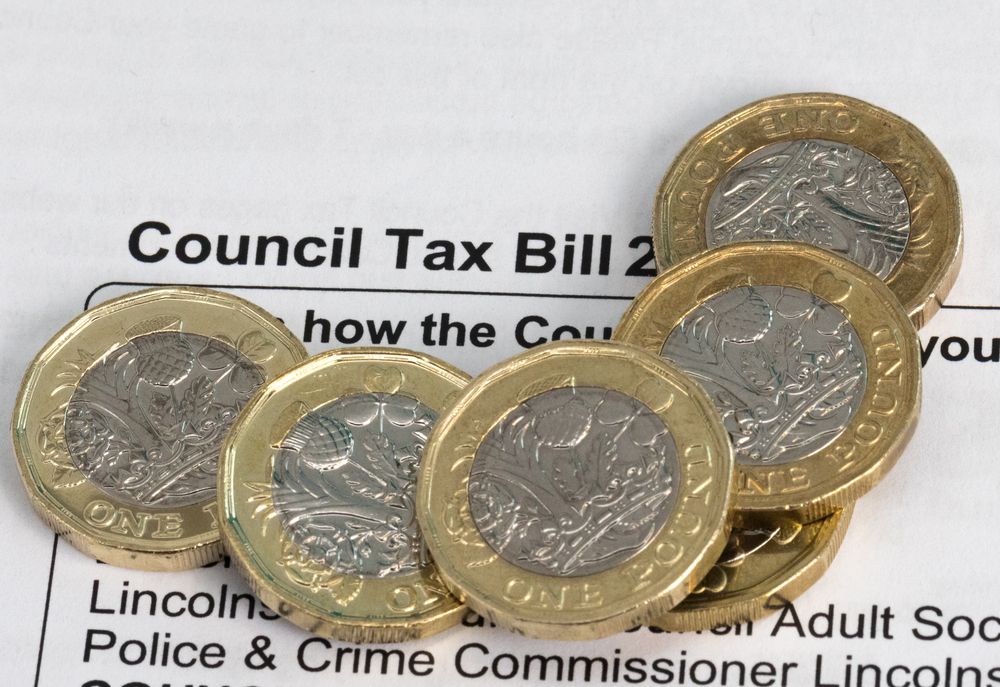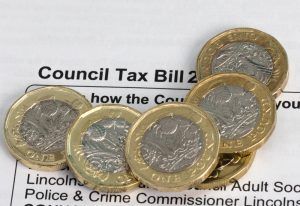If you’re behind on your council tax you could find yourself in more serious trouble than you might expect.
Council tax debt is what’s known as a ‘priority debt’ – and although you might not get as many calls, letters and reminders for it when compared to other money you owe, it can still escalate to legal proceedings just as quickly.
We’ll take a look at what can happen if you don’t pay a council tax debt, answer some common questions – and help you put together a plan for getting back in control this important bill.
What is council tax?
Council tax is a bill that everyone with a domestic property pays in the UK. The money it raises goes toward paying for schools, rubbish collections, police and fire, social care and much more.
The amount you pay depends in council tax on a series of factors, some that relate to your home and others that relate to the local area. You can also apply for a council tax reduction in certain circumstances, such as if you are a full-time student.
If you owe council tax you can’t afford to pay, you may be able to come to an arrangement with the local council, but if you decide to stop paying your council tax without prior notice, you could face severe financial and even legal penalties.
How much should my council tax payments be?
Council tax is paid according to the ‘band’ your property is deemed to be in. This ranges from band A, the lowest – to band H, the highest. The band is set by your local authority and factors in numerous things about the house and the local area.
The amount you pay also depends on how many people who are eligible for paying council tax live in your home. A single eligible occupant will get a discount of 25%.
Your local council will be able to give you some guidance on who should pay council tax, but generally, children under 18, students, some people with disabilities and some other groups are not eligible, so it’s worth checking.
How is council tax paid?
You’ll get an annual council tax bill each year in March, detail the year’s council tax bill. Although this will look like a large amount – don’t worry, it’s very rare that anyone pays council tax upfront, instead, you’ll be expected to pay in 10 monthly payments.
You don’t have to pay over 10 months though, your council has to let you pay over 12 months if you ask to do so, this can bring your monthly payment down and help you predict your outgoings throughout the year.
The local authority will typically collect council tax by deducting it directly from your monthly wage, although there are alternative payment plans.
What happens if there’s a mistake on my council tax bill?
Councils sometimes make a mistake and apply a discount when your home isn’t due one.
If this is the case it’s important that you let them know as quickly as possible, as knowing but failing to act could result in fines plus a requirement that you repay any incorrect discount applied.
What could happen if you don’t pay?
When you move into a property the council will issue a council tax bill in your name. If you miss any payments you’ll be sent a reminder. Assuming you pay when you get this reminder you won’t face any additional action – but if you don’t, the council will send you a request that you then settle the full council tax bill – with no option for setting up a direct debit.
Many councils will still offer some flexibility beyond this – and can often actually set up a direct debit again easily – the prospect of having to pay a year’s worth of council tax is often enough to make people pick up the phone.
Continuing to ignore your council tax
If you continue to ignore these notices about council tax payment, the debt will continue to build up until you receive a final notice – that’s when further action will begin.
This further action often involves reminder letters – and these are often followed by letters notifying you court action is being taken – which in turn could mean that bailiffs may attend your property to collect the debt.
In some instances, councils will take payments straight from your wages using an ‘attachment of earnings’ or take payment directly from your benefits. In some very rare instances, you could have a charge registered against your home, be made bankrupt or even be sent to prison. Don’t worry though, prison terms cannot be imposed unless you’re deliberately refusing to pay and no other method can be used to recover the money.
Putting a plan together to tackle your council tax debt
If you find yourself owing money toward your council tax bill it’s really important to put a plan together to address the debt as soon as possible.
Our 4-step method should get you back on track and help prevent further action being taken:
Step 1: Contact the local council
No matter how much you might wish it would, ignoring council tax debt isn’t going to stop it being pursued by the local authority.
Call them and explain that you’re having financial difficulties that are stopping you paying. Even if you can’t make a payment right away, talking to them opens a line of communication – this is important.
Step 2: Work out if you’re due a council tax reduction
The gov.uk website has a useful tool that could help you work out whether you’re entitled to a reduction in your council tax bill. Many people are entitled to a reduction – and it could be up to 100% of the bill.
Any possible reduction depends on where you live, your personal circumstances and a number of other factors – but support is there if you’re entitled to it.
Step 3: Make a simple budget for council tax bills
By taking away your monthly outgoings from your income you’ll work out how much disposable income you have. Now, there are obviously other important things to be factored into a budget – like food costs, transport and so forth – but that’s normal.
Putting a quick budget like this together shows your local council that you’re committed to working out how much you can pay – and also means you won’t over commit and leave yourself short when it comes to paying other essentials.
Step 4: Prioritise missed council tax payments
Since you’ve created a budget to calculate how much you can afford to pay off your debt and any council tax payments that are due moving forward, you should ensure that these payments leave your account ahead of anything less important.
Although they might not be things you want to cut back on, council tax should be paid before you pay for things like:
- Subscriptions to TV channels and internet services
- Payments toward unsecured loans and credit cards (you may be able to freeze the interest on these if you call and explain you have other more important debts to clear)
- Store cards and hire purchase agreements
- Loans from friends and family
Where can I get debt advice on dealing with unpaid council tax?
If you’re having trouble keeping up with council tax payments then you’re not alone, but council tax arrears are a priority debt. Continual failure to pay your council tax could lead you to face legal action.
Creditfix can help you deal with council tax debt, whether it’s providing you with guidance on how to manage your budget, or supporting you with a formal debt solution.
For debt advice on council tax arrears and much more, talk to a friendly Creditfix adviser today on 0800 0431 431.




